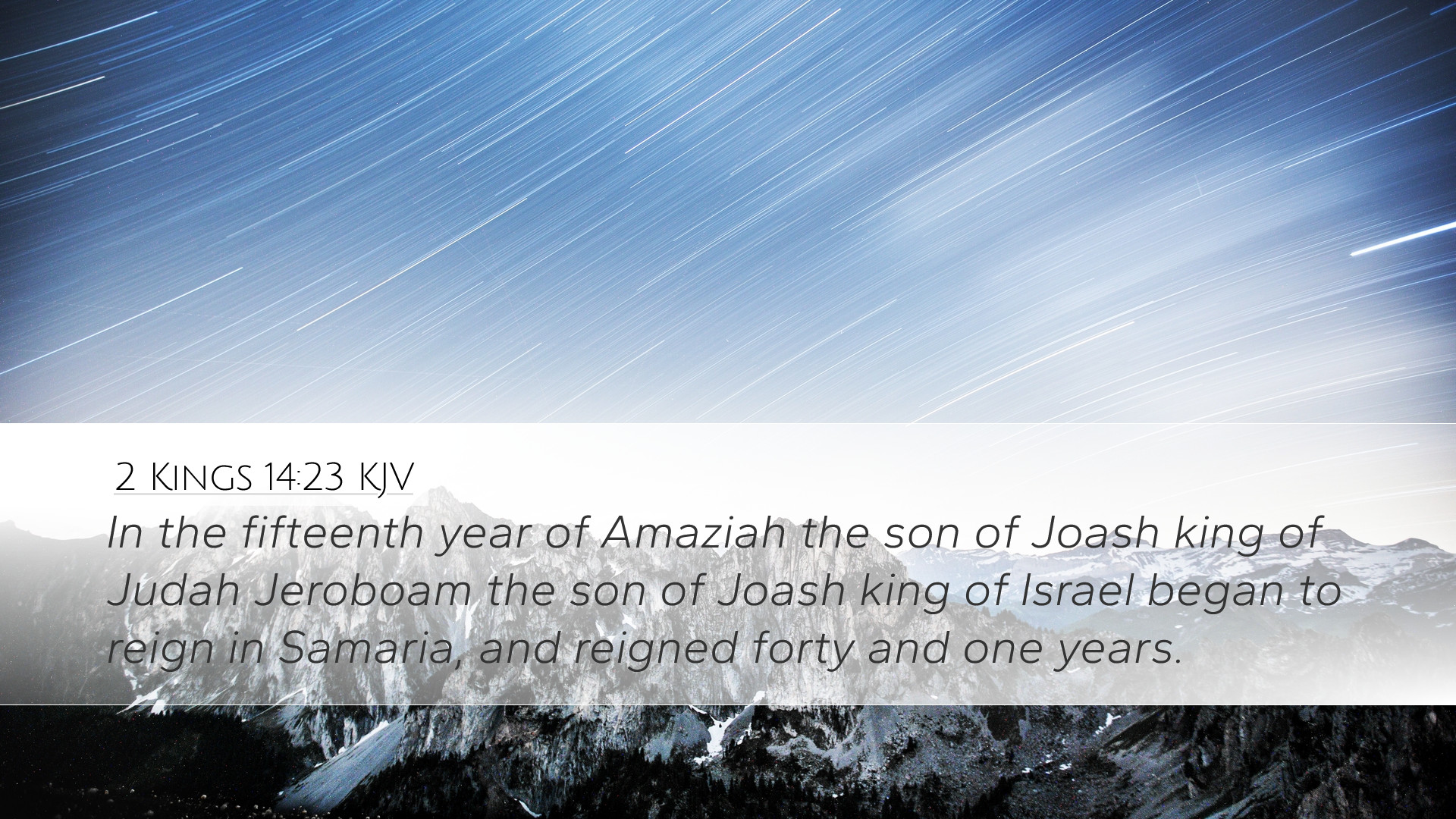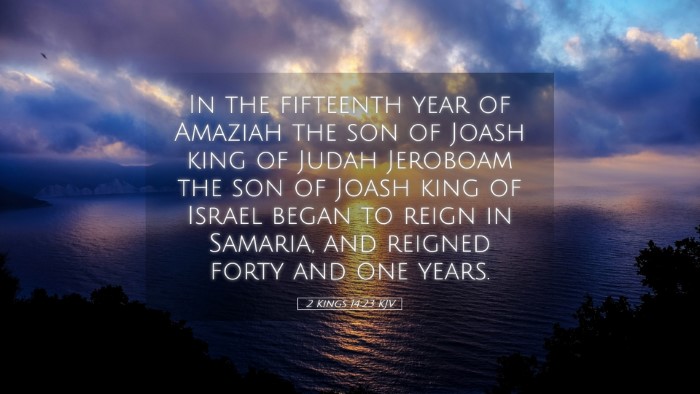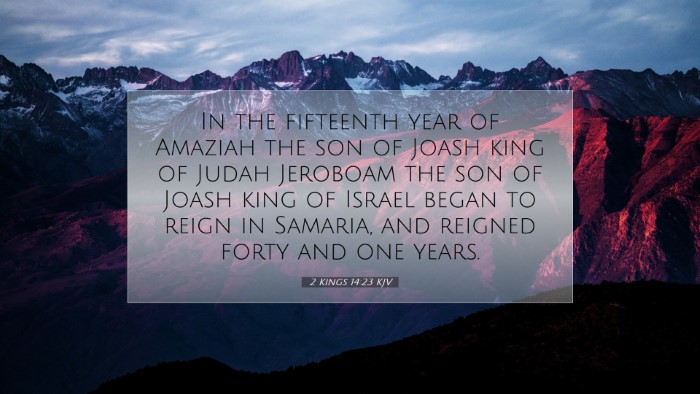Commentary on 2 Kings 14:23
Verse Reference: 2 Kings 14:23 - "In the fifteenth year of Amaziah the son of Joash king of Judah, Jeroboam the son of Joash king of Israel began to reign in Samaria, and reigned forty and one years."
Introduction
This verse serves as a significant historical marker in the narrative of the kings of Israel and Judah. It establishes the reign of Jeroboam II, a pivotal and influential ruler in the northern kingdom of Israel, often contrasted with his contemporaries in Judah. Understanding this verse within its context enriches its meaning and importance to both ancient and modern readers.
Contextual Overview
In the broader scope of 2 Kings 14, this verse introduces Jeroboam II's reign amid a tumultuous period in Israelite history. At this time, the nation was divided, with Israel in the north and Judah in the south, each with their own monarchy. The chronicling of Jeroboam II's ascent to the throne provides insight into the political landscape and the religious climate of the period.
Insights from Commentaries
Matthew Henry's Commentary
Henry highlights Jeroboam II’s reign as a time of significant prosperity for Israel. He notes that Jeroboam II was able to restore Israel’s borders, achieving a degree of territorial expansion and influence that reflected a resurgence in national pride. This raises the question of divine favor despite Israel's idolatrous practices.
Albert Barnes' Notes
Barnes emphasizes the length of Jeroboam II’s reign—41 years—which was notable for Israel. This extensive period allowed for relative stability and economic growth. However, Barnes points out that this was juxtaposed with a failure to return to true worship, indicating a people that were flourishing materially yet suffering spiritually.
Adam Clarke’s Commentary
Clarke discusses Jeroboam's connection to his namesake, Jeroboam I, drawing parallels between their reigns. Clarke points out the prophetic implications of Jeroboam II’s reign, highlighting that despite Israel's successes, the prophetic voice remained critical of their spiritual state. This indicates a perpetual tension between national success and spiritual integrity.
Theological Implications
- Divine Sovereignty: This verse underscores God's sovereignty in the rise and fall of nations and leaders, demonstrating that all authority is ultimately derived from Him.
- The Relationship Between Politics and Faith: The text invites reflection on the implications of leadership and governance in relation to faithfulness to God, a theme that resonates deeply within church leadership today.
- Warnings Against Idolatry: Jeroboam II's reign, while prosperous, serves as a warning against the dangers of idolatry and a false sense of security based on material success rather than spiritual fidelity.
Practical Applications
For pastors and theologians, this passage provides a crucial reminder of the importance of maintaining spiritual integrity amidst success. It challenges leaders to evaluate their ministries in the light of God’s standards rather than societal measures of success.
Students of the Bible are encouraged to delve deeper into the complexities of the historical narratives, recognizing how past patterns of behavior can inform present-day faith practices.
Ultimately, this commentary on 2 Kings 14:23 calls for a holistic view of leadership that integrates spiritual devotion with societal responsibility, urging believers to seek God's guidance in every endeavor.


